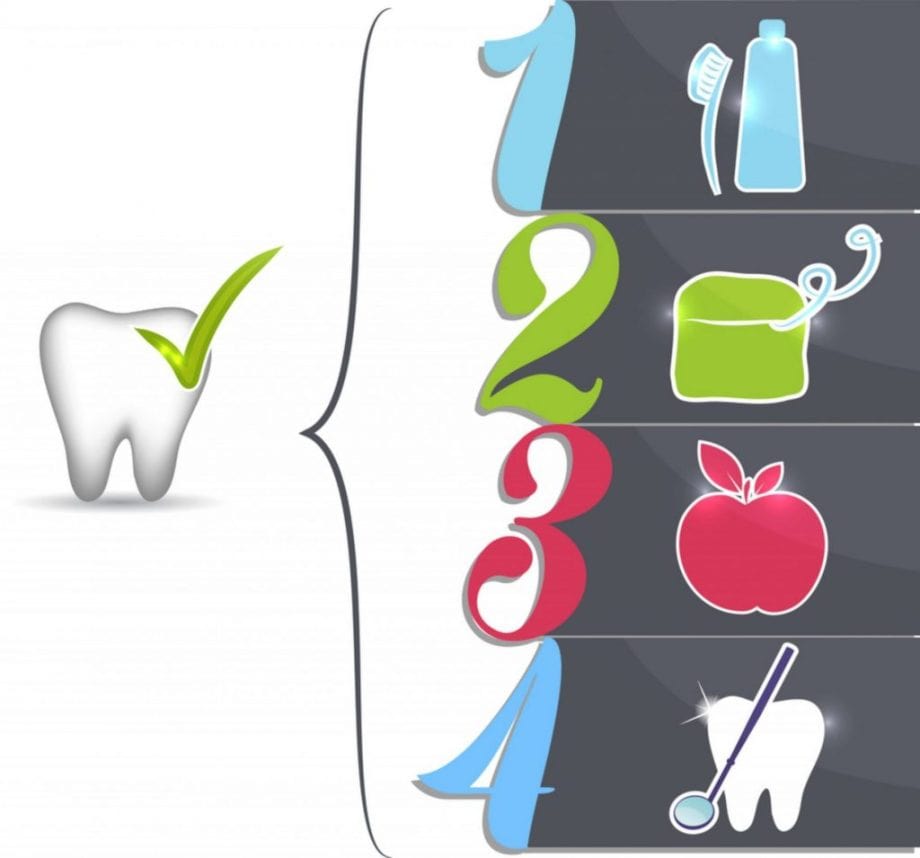
Six Important Dental Implant Care Tips
If you’ve recently had dental implant surgery, you’re probably wondering what you can do to keep your new smile in perfect condition. The good news is that dental implant care is not unlike regular tooth care. The only real difference is that you need to be a little more conscientious about the products you use and a little more diligent about giving your implants and your teeth the attention they need.
Here are six of the most important dental implant care tips to help maintain your beautiful new smile.
Brush Your Teeth Twice a Day Every Day
The most important tip of all is also the most obvious. You should brush your teeth thoroughly every single day in the morning and before bed, no matter if you’re caring for dental implants, a full set of teeth, or anything in between. However, because dental implants are more sensitive than teeth, you need to take extra care when brushing them. You can buy a soft-bristle toothbrush specifically made for dental implants, or you can try the sensitive mode on an electric toothbrush.
Although the average person will only brush their teeth for forty-five seconds at a time, a thorough brushing of your teeth should last at least two minutes. Brushing your teeth not only helps brighten your smile and freshen your breath, but it also prevents plaque and tooth decay.
Be Sure to Floss Daily
Flossing is the dental duty that most often goes ignored by the average person. Now that you’re caring for dental implants, you can no longer afford to be that person. When you fail to floss your teeth, you allow bacteria to grow inside your mouth that can lead to tooth decay. When you have dental implants and forget to floss, your odds of finding yourself with oral hygiene issues are even more likely.
Flossing around your dental implant should be done with extreme caution, and you shouldn’t use just any brand of floss. There are dental floss brands designed specifically to accommodate people with dental implants. You can also try out unwaxed dental tape or maybe even invest in an oral irrigator like the Waterpik, which is proven to be safe for dental implants.
Drinking Alcohol and Smoking Hinder Dental Implant Recovery
Drinking and smoking are never good for you, but they can be particularly harmful to your mouth when you are recovering from dental implant surgery. Modern dental implants require what’s called osseointegration in order to work. Osseointegration is when the bone is made to grow around an artificial implant so that the two become fused together, essentially making the implant a part of the patient’s body.
In dental implants, the bone of the jaw needs to successfully grow around the implant fixture in order for it to stay fused in place. Both alcohol and tobacco have been found to hinder osseointegration and cause multiple different dental implant surgery recovery issues. While an occasional alcoholic drink may not be catastrophic, avoiding smoking and drinking when you are making your recovery is still your best bet.
Avoid Foods That Might Damage Your Implants
When you’re healing from dental implant surgery, there’s a long list of foods that can hinder your recovery and do damage to your implants. Avoid the following foods so that you can avoid a major setback:
- Hard foods (nuts, chips, crackers, raw carrots, apples)
- Chewy foods (steak, jerky, gummy candy, bagels, granola bars)
- Sticky foods (dried fruit, gum, caramel, taffy, other candies)
- Acidic foods (lemons, limes, oranges, tomatoes)
- Spicy foods (hot sauce, hot peppers)
- Hot food and drinks (hot tea, hot cocoa, coffee, soups)
The list may be long and full of some of your favorite foods, but you’ll be able to eat many of them once your dental implant has healed. The only foods you should still try to avoid even after your implant is integrated are particularly sticky or hard foods. These types of foods can still damage a fully fused implant, as well as your other teeth.
Be Sure to Maintain a Healthy Diet During Dental Implant Recovery
Now that you know what you can’t eat, you might be wondering what you can eat. It’s essential to maintain a nutritious, protein-rich diet of soft foods and drink plenty of water in the days and weeks following your dental implant surgery. Include the following foods in your post-implant meals to ensure a fast and full recovery.
Protein-rich Foods
Eggs and beans are good to start, as they’re soft, but as your healing progresses, you can move along to fish, ground beef, and chicken. Just be sure to cook your meat in a way that keeps it soft and that you chop it up into small pieces.
Dairy Products
Dairy is rich in both protein and calcium. Plenty of milk, softer cheeses, and yogurt will help you make a speedy recovery. Milkshakes or ice cream once in a while can be great, too.
Fruits and Veggies
Be sure to pick soft fruits such as berries, bananas, and melons, and be sure to cook your vegetables in order to soften them up. Broccoli, carrots, and potatoes are all excellent choices.
Schedule Regular Dentist Appointments
Your new dental implants can last you your whole life if you give them proper care. That includes regular visits to your dentist. Schedule at least one or two appointments a year so that your dentist can ensure that your dental implants have healed and are functioning properly. During your regular visits, your dentist will also clean the area around your dental implant using special tools to prevent plaque buildup and further issues with your gums and mouth.
You may have dental anxiety, but if something is wrong with your dental implant, it’s best to catch it before a more serious issue arises.
If you have more questions about dental implant care, contact Ablantis Dental or call (760) 334-0128 today!



